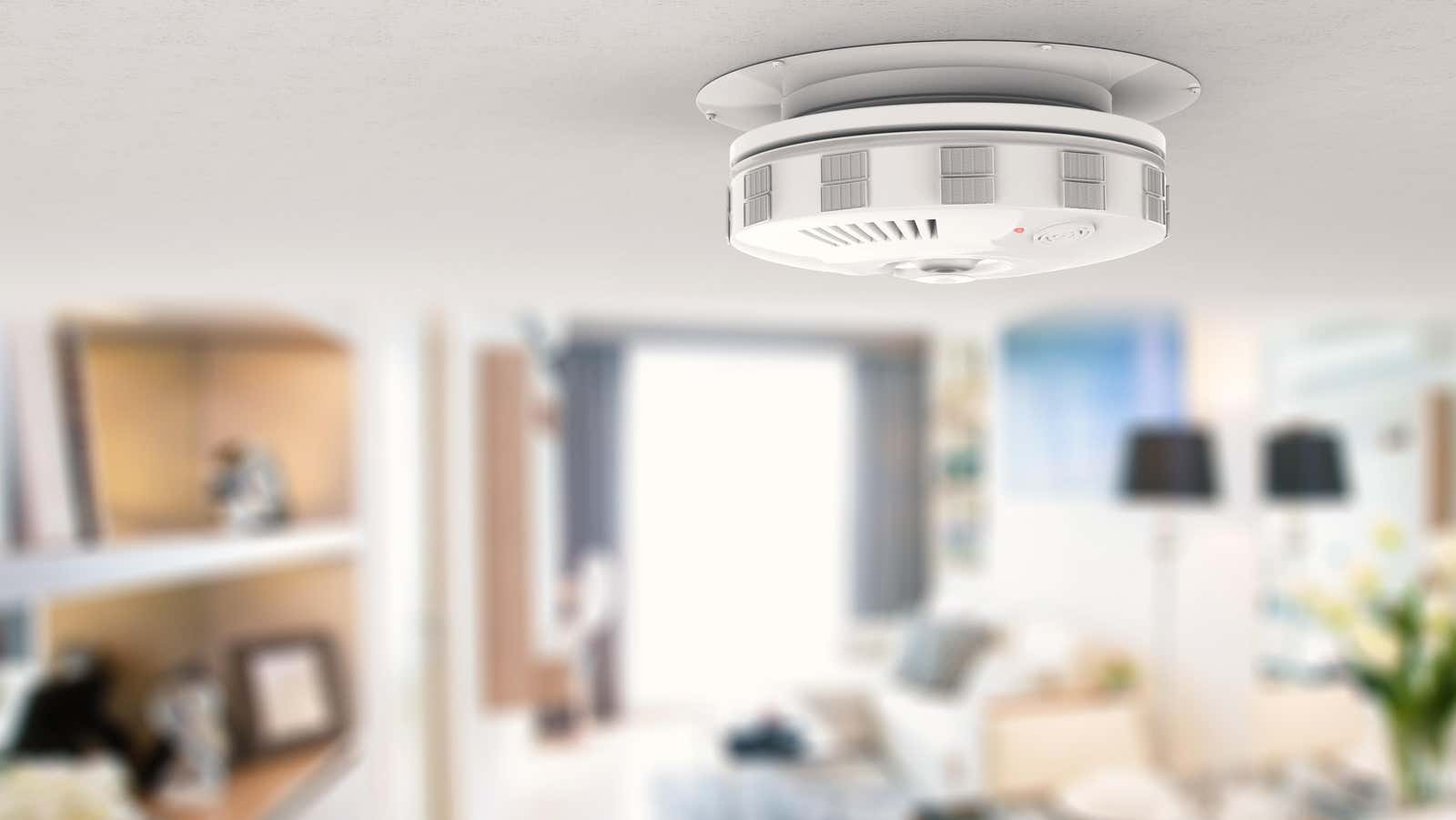Is Your Smoke Detector Good Enough?

Home fires are horrendous—they can go from spark to flame in as little as thirty seconds . And yet, most of us don’t often think about smoke detectors in our homes. Whether it ‘s ultra-modern “smart” detectors or old-school models, we tend to neglect their maintenance. Maybe we don’t change batteries as often as we should, or we don’t know when it’s time to replace them with a new model . And we probably don’t spend much time thinking about the quality, durability and performance of our smoke detectors. But we have to.
Here’s how to know if your smoke detector is good enough to protect you and your loved ones, and what to look out for when it’s time to upgrade.
Make sure your smoke detector is certified
When buying new smoke detectors, the first thing to look for is the certification marking on the packaging. Underwriter’s Laboratories and Intertek Electrical Testing Laboratories each award a certification mark to smoke detectors that have been tested and meet safety standards. If the model shows neither, put it back on the shelf.
Choose Dual Sensors
Smoke detectors have two main ways of detecting a fire: ionization detectors, which use (very) weak radiation to detect smoke, and photoelectric detectors, which use light. They both work, but tend to be better at detecting different types of fires. Ionization sensors are better for sudden, fast-spreading fires, while photoelectric sensors are more effective for detecting slow, smoldering fires. Instead of trying to figure out which areas of your home need one sensor or the other, look for a sensor that has both.
Some of the newer models can even tell the difference between cooking smoke and a dangerous fire , which is an extremely useful feature if you regularly burn your lunch.
Pay attention to the non-removable battery
Most smoke detectors have a battery, even those connected to your home’s electrical wiring. Thus, if electricity is lost in the house, the alarm system will still work. Whether you’re installing a wired or cordless model, look for a model with a non-removable battery instead of a nine-volt one. Non-removable batteries usually last as long as the detector itself, approximately 10 years. Nine volts need to be changed once or twice a year.
Check date of manufacture
The reason you should replace your smoke detectors fairly regularly is because their detectors can become less sensitive to smoke particles over time. Each smoke detector has a manufacturing date stamped on the packaging and on the underside of the device (the side facing the ceiling). The sensors on most detectors will last about 7-10 years under normal operating conditions – after which it is time to replace them.
Get one that detects carbon monoxide, too
Carbon monoxide is a silent killer, an odorless gas that can build up in a room and cause you to suffocate while you sleep (and disrupt your brain and eventually make you pass out even when you’re awake). You can install separate carbon monoxide detectors, but it’s best to choose an alarm that looks for smoke and carbon monoxide. This ensures consistency in the replacement schedule and ensures that every part of your home is protected from both threats.
Consider a “smart” detector
Like everything else, smoke detectors can now be “smart” – and there are good reasons to choose a “smart” model. First, the device can automatically call the fire brigade if it detects smoke. Second, it can alert you even when you’re not at home, so you’re at least aware of the situation. And if they’re integrated into a wider smart home network, they can even automatically unlock the door so you don’t slow down.
If you don’t need a complete “smart” solution, at least look for sensors that connect to each other so that when one alarm is triggered, all others are triggered.